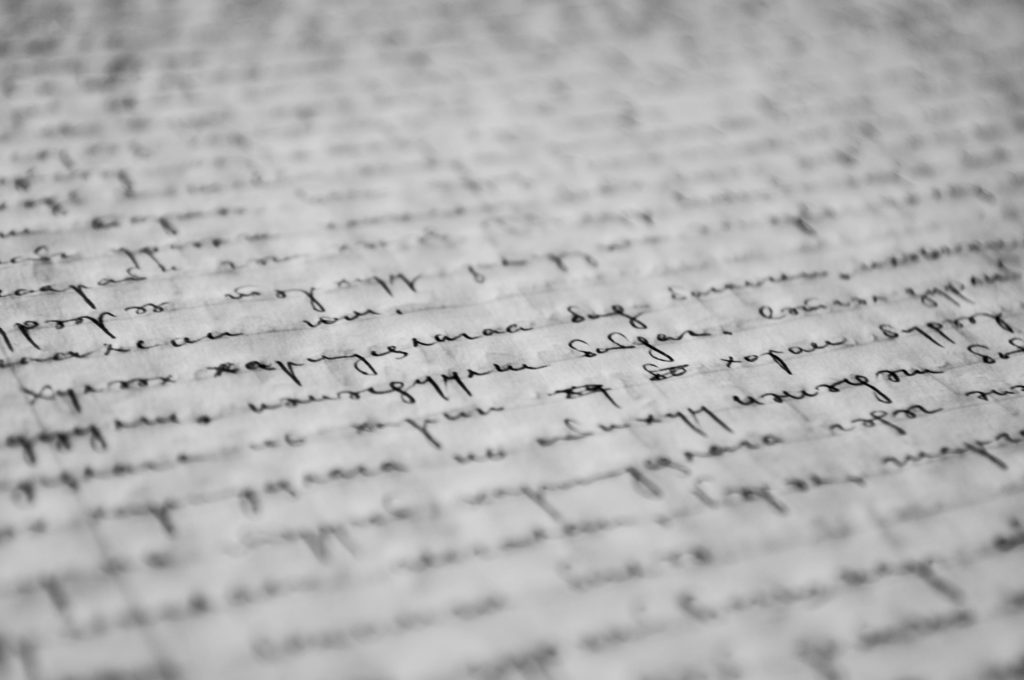Sylvia Plath on “Writing”
“Let me live, love, and say it well in good sentences.”
Writers always have a way with words and a way to linger on in this world for longer than their mortal lifespan allows them to. They live a thousand lives and travel across the world unrestricted by the confines of terrestrial boundaries. How incredible it is to spin tales from your thoughts and use your voice to become a completely different person in a completely different era and place. The world has always held writers in great regard, yet often puts them up on a pedestal, marking their work as something that cannot be replicated by mere ordinary folks. But the truth is, it doesn’t take an extraordinary mind to be a writer. It just takes a mind brimming with ideas and voices bursting to get out and mingle in the thoughts of people who are then forever changed by those ideas.
You would know this if you are a writer and especially if you’re a reader, a lover of books and the written word. How many times have you immersed yourself into a good novel, unable to tear your eyes away because you can’t even bear the thought of jumping out of the book’s world and back into your own? How many nights have you stayed awake curled up on your bed with a good book and the peace that the midnight darkness brings? You know exactly what I’m talking about. You’ve lived it. You’ve relished it. And since you’re reading this blog, you’ve decided to make a world of your own.
Annie Proulx had unlocked the key to writing when she declared ‘the shape of stories and sentences start from the creation of different words on a page. Writing comes from reading, and reading is the finest teacher of how to write.” Reading important literature can change our lives for the better. It inspires us to think in directions we’ve never travelled on before, to accept ideas we didn’t know existed and to become a more worldly version of ourselves. It doesn’t always have to be a work of fiction.
Autobiographies are made with the sole aim of getting the writer’s life story out into the world and also to let the readers know that every cloud has a silver lining. It reminds us that life – our life – is worth living. We read to know that we are not alone, a reminder of our limitless potential to not just overcome obstacles but also to create new paths. Literature of science and technology is what has pushed humanity to achieve what no other species on this earth can even dream of. We went as far as to put a man on the moon! Words, and especially the people who write them, really do change the world.
To be a good writer one must know what a good writer is. There is a reason why we’re attracted to good writers. Why we keep going back to their work and let their words wash over us again and why we wait with baited breath for them to write something – anything – again.
The great Canadian-American author Saul Bellow, who published 14 novels and novellas and won the Nobel for writing in 1976, fittingly described the bond between the writer and the reader: ‘When you open a novel — and I mean of course the real thing — you enter into a state of intimacy with its writer. You hear a voice or, more significantly, an individual tone under the words … It is more musical than verbal, and it is the characteristic signature of a person, of a soul. Such a writer has power over distraction and fragmentation, and out of distressing unrest, even from the edge of chaos, he or she can bring unity and carry us into a state of intransitive attention. People hunger for this.’
Anyone would be hard pressed to describe it better than this.
They say that if there’s a book that you want to read, but it hasn’t been written yet, then you must write it. Easier said than done. Writing can seem like a challenge when you have a mind full of ideas but you can’t seem to put pen to paper. The first step is always the hardest, the first sentence the most uncertain. But you have to remember that every professional writer was once an amateur that didn’t quit. Just to help you get started, here’s a compilation of 16 suggestions to improve your writing skills.
#1 Read books of great writers
This may sound like self-evident advice but its rooted in truth. You need to know what a great writer is made of, to become one yourself. All the tennis players watch and rewatch hundreds of game tapes of the pros to improve their game. The same way, you should start reading good work, great literature and be able to emulate it. Through the process of listening to their voice, you’ll find it easier to find your own. Watch out for the different styles of writing you come across to understand which one is a better fit for you.
#2 Draw influence from their work
Let the work of the great’s influence you, but don’t let it crowd your judgement. At the end of the day, its your voice that needs to be the loudest in your work. Refrain from cramming your writing with the ideas of others and lose your individuality in the process. Adopt different themes and abstracts, identify which genre speaks out to your style the most and then just go from there.
#3 Jot down ideas when the inspiration strikes
Inspiration doesn’t come with a warning call. Like lightning it can strike at any time, without a moment’s notice and what a shame it would be to forget it because you didn’t write it down. This is an underrated but vital advice that would serve you well. Keep a handy notebook or little index cards like the writer Nabokov, to write down ideas for stories or fragments of a thoughtful conversation you participated in. write down song lyrics that moved you or details about people who stood out to you. Writing down these ideas can inspire you when you look back on them and help you in the long run.
#4 Write as much as you can
Get it down. Take chances. It may be bad, but it’s the only way you can do anything really good.”-William Faulkner.
Stop waiting to find the perfect sentence or the perfect word and just write down whatever comes to mind. The first draft is just for you anyway. You have plenty of time to edit it, rephrase it, add or delete stuff from it. Don’t let the thought of not finding satisfactory things to say stop you from writing altogether. Just start writing and let the words fall into place on their own. The key is to just get started.
One day, you will find the words, and they will flow seamlessly from within you. But it would be foolish to assume that your first day would be it.
#5 Create a writing ritual
Try to write every day, or multiple times a day if possible. The old adage stands true – practice does make perfect. Writing everyday isn’t for material or content for your work, instead its to instill the habit of writing in you, so that your mind can smoothly bring out the words when you need them. The more you write, the better you’ll get. Write stuff for yourself, put your thoughts out there. Commit to a diary or a journal or a blog. Write just to write, and have a lot of fun doing it.
#6 Eliminate distractions
Distractions are the bane of all writers. A crumpled up piece of paper can turn into a basketball or a bobblehead can hold your attention for ages and leave you wondering where all the time went. Multi-tasking is not for writers. Turn off your phone and all other electronic gadgets. Put all your vices and biggest distractions in the other room. Writing is best done in a quiet room with a calm, tranquil ambience. Play some mellow instrumental music if you like. Whatever gets your brain juices flowing.

#7 Plan outlines
This tip might sound contradictory to the above “just write” tip, but it couldn’t be further from the truth. Its actually really useful to have a structure to your rambling, to have an organized school of thoughts. Its pretty functional to do your planning or pre-writing thinking just before you sit down to write. You can brainstorm at any point during the day, think about it on your daily run or a taxi ride, then write things down and give them a proper structure. So when you’re finally ready to sit down to write, you already have an idea of what direction to move in. The thinking’s already been done. For a great method for planning out how to write a novel, check out the Snowflake method online.
#8 Make algorithms for plotlines
All the best novels have one thing in common – a phenomenal climax. The climax of a story is the point at which the whole worth of the reading that book is tested to the maximum possible degree. So that is why its usually the moment with the greatest amount of action and drama and poignant dialogues. The whole setting of the story was leading up to this particular scene so you absolutely cannot ruin it for the readers with a messy plot line full of plot holes. Everything in your story should just add up at the end. Do not leave any loose ends. Its imperative to tie everything together in a tidy way so that the reader feels a sense of completion by the end of the book.
#9 Be concise
Stephen King very aptly said, “When your story is ready for rewrite, cut it to the bone. Get rid of every ounce of excess fat. This is going to hurt; revising a story down to the bare essentials is always a little like murdering children, but it must be done.”
Editing your work is always best done at the end of writing the book. Its vital to edit every sentence and remove everything that does not hold enough weight to stay
This is best done during the revision process, but you need to edit every sentence and paragraph and remove everything that is not integral to the plot of the story. A short sentence is better than a longer one, and a clear word is preferred over a whole lot of jargon. Compact is powerful.
#10 Use powerful sentences
Words can be like X-rays if you use them properly – they’ll go through anything. The strongest of mental armor and the coldest of hearts. You read something powerful and you’re pierced with its impact. You’ll never be the same again.
The aim is to write sentences with an impact, that “oomph” factor. The kind of words that stays in the mind of the reader long after he has put the book down. Like an earthquake, shatter the stillness of the reader’s mind with the profoundness of your work. Its good to try and work with shorter sentences with good strong verbs. Not every sentence you write will bring the readers to tears and that’s okay – because you’ll obviously work with variation. But you’ll eventually find it easier to add in the pizzazz after revision of your work. The first draft might not necessarily have it all.
#11 Experience new experiences and experiment with your writing

“Either write something worth reading or do something worth writing.”
-Benjamin Franklin.
A writer’s greatest asset is their ability to write about their experiences in such a way that it comes to life. As a writer, you’ll essentially have to paint with words. Now in order to write something worth reading, its important to add a personal touch, for that relatability factor. This requires stepping out of your comfort zone and actively seeking new adventures. Spice up your life to enrich your soul with amazing memories which can serve as fodder in your writing ventures.
There’s a lot to experiment with in your writing. Try out new things with your style, your voice, your mechanics and themes. See what works and suits you and throw out what doesn’t. Keep in mind that to emulate the works of the great writers doesn’t mean you have to be exactly like them. Your individuality should still be the brightest shining factor in your writing. Experiment with your style, your voice, your mechanics and different themes. Try out new words you’ve never taken.
#12 Learn to be conversational
In order to make a story feel more realistic, you’ll occasionally have to use a more conversational tone. A lot of people write very stiffly, their writing doesn’t spark the reader’s mind. It’s not an easy task to write colloquially but it’ll come with practice. Some situations do call for the need to break the rules of grammar, however be very careful how and when you choose to do so. For example, writing dialogues in a different accent is a good enough reason. Immerse the reader in the experience of the conversation taking place.
#13 Make your readers believe in your story
When Colombian author Gabriel Garcia Marquez was asked the difference between journalism and writing fiction, he replied,” In journalism, just one fact that is false can prejudice the authenticity of the entire work. In contrast, in fiction one single fact that is true can give legitimacy to the entire work. That’s the only difference, and it lies in the commitment of the writer. A novelist can do anything he wants so long as he makes people believe in it.”
That last sentence is the essence of what this advice is about. It doesn’t matter where your story is set in, what period it is or what kind of characters you have. What matters is how you bring them to life. Create convincing characters who have credible motivations and realistic flaws, put them in immersive settings and give them realistic conflicts and your fiction will feel believable. Let’s be honest, it’s basically the outline of our own lives that we’re trying to recreate with a pen and paper.
#14 Use concrete imagery
A good writer uses a pen the way an artist uses a paintbrush. Don’t tell the reader what’s happening in the story, show him. Paint a picture with your words and absorb the reader into your writing without him even noticing it.
Emotional and historical themes are best conveyed by concrete and particular imagery. Instead of describing a character who ‘loves nature’, for example, describe the character’s actions and experiences that demonstrate this love of nature. This gives your writing a more visual and empathetic reading experience.
#15 Hook the reader – start with conviction
“You must stay drunk on writing so reality cannot destroy you.”
-Ray Bradbury, Zen in the Art of Writing.
When you try to connect with readers and pour your own unique perspective and temperament into your work, you can bond with readers even without the most perfect sentence structure. Use a compelling narrative voice to bait the reader and once they’re invested into your story, that’s when you know you’ve hooked them. A few ways to hook your reader would be:
- Begin your story at a pivotal moment
- Write about morally grey villains
- Use irony and the element of surprise
- Add an unusual situation
#16 End with purpose

In the field of writing, the unsaid rule is to start strong and end strong. A good beginning is what will hook your reader for sure, but a good end is what will make them come back for more. Crafting a good ending would mean tying up all the loose strings. There’s nothing more despicable than an unhinged climax and an ending that left so many questions unanswered. Use your algorithm to figure out how many paths need to be brought to the finish line along with the story arc. There’s no dictum that every book needs to have a happy ending, it’s completely acceptable to have a sad ending. But it needs to make sense, it needs to give the readers the closure they deserve for being so invested in the story.
There are so many tips and tricks to becoming a good writer. But the best of them all would be the one you find out for yourself through your own journey of becoming a writer. Everyone has their own way of finding their footing in the literary world and rest assured, so will you. All you have to do is start. When it comes to writing, its a trial and error run. You either get it or you don’t. Of you don’t, then you try again and again till you do. By all means show your work to your friends and families and get feedback. They represent the regular public who will eventually read your work. So put yourself out there, don’t be shy.
Creative writing skills is something that you just develop on your own. If you feel that you don’t have anything worth writing about then you’re clearly lying to yourself. Writers are some of the most observant and soulful people on the planet. Their hands write whatvtheir eyes can see and what their hearts can feel. It’s such a beautiful notion to be someone who can do that. Just remember the words of the one of the most prolific writers in literature, Sylvia Plath,” Everything in life is worth writing about if you have the outgoing guts to do it, and the imagination to improvise. The worst enemy to creativity is self-doubt.”
You have the words inside of you. You just need to bring them forth and show it to the world. Your writing deserves an audience.
Online Writing Course by Ruskin Bond:
The best person to teach writing skills and give writing tips would always be a writer. At Unluclass we have the famous and effervescent Ruskin Bond to teach you creative writing online. This Padma Shri recipient has clearly proved his mettle in the world of words, so you will definitely be in good hands. Come home your skills with us and become the writer you were always meant to be.
Subscribe to Ruskin Bond’s Unluclass and learn writing online now!

